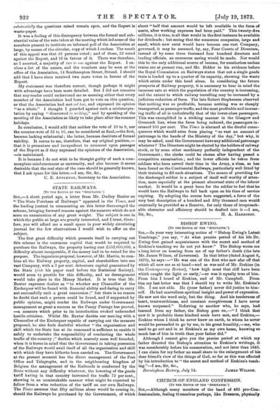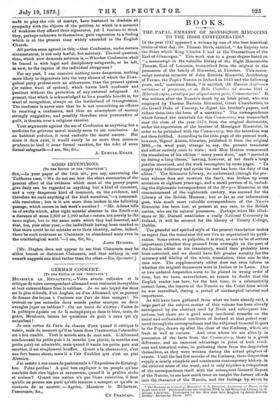CHURCH-OF-ENGLAND CONFESSION.
[TO THE EDITOR OF THE "SPECTATOR:]
SIR,—Although many members of the band of 483 pro-Con- fessionaliste, feeling themselves perhaps, like Erasmus, physically
unfit to play the role of martyr, have hastened to disclaim all sympathy with the objects of the petition to which in a moment of weakness they affixed their signatures, yet I venture to think they, perhaps unknown to themselves, gave expression to a feeling which is at the present time widely extended in the English Church.
All parties seem agreed in this,—that Confession, under certain circumstances, is not only lawful, but salutary. The real question, then, which now demands solution is,—Whether Confession shall be fenced in with legal and disciplinary safeguards, or be left, as now, to the caprice of the individual clergyman ?
For my part, I can conceive nothing more dangerous, nothing more likely to degenerate into the very abuses of which the Evan- gelical party profess such an abhorrence, than the present system or rather want of system), which leaves both confessor and penitent without the protection of any external safeguard. At present, that which is acknowledged to be a possible benefit is, for want of recognition, always on the borderland of transgression. The confessor is never sure that he is not committing an offence in receiving a confession, and thus an atmosphere of secrecy strongly suggestive, and possibly therefore even provocative of guilt, is thrown over a religious exercise.
Your arguments against the use of Confession as anything but a medicine for grievous moral malady seem to me conclusive. As An habitual pabulum, it must enervate the moral nature. But since it does exist, it would surely be no more than common prudence to lend it some formal sanction, for the sake of some formal safeguards.—I am, Sir, &c., A. EUBULE-EVANS.



































 Previous page
Previous page